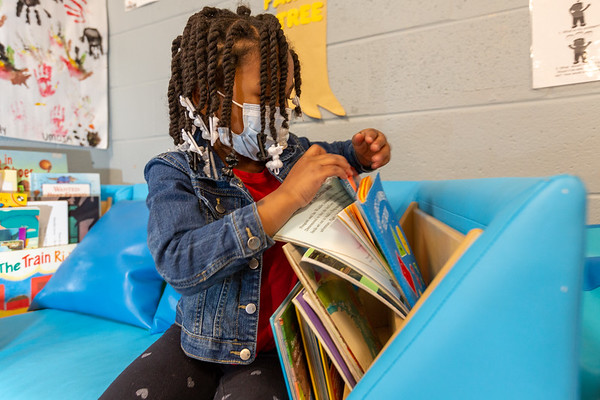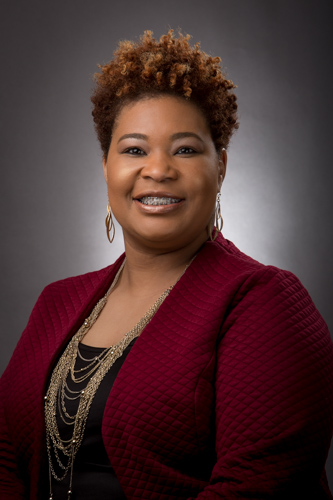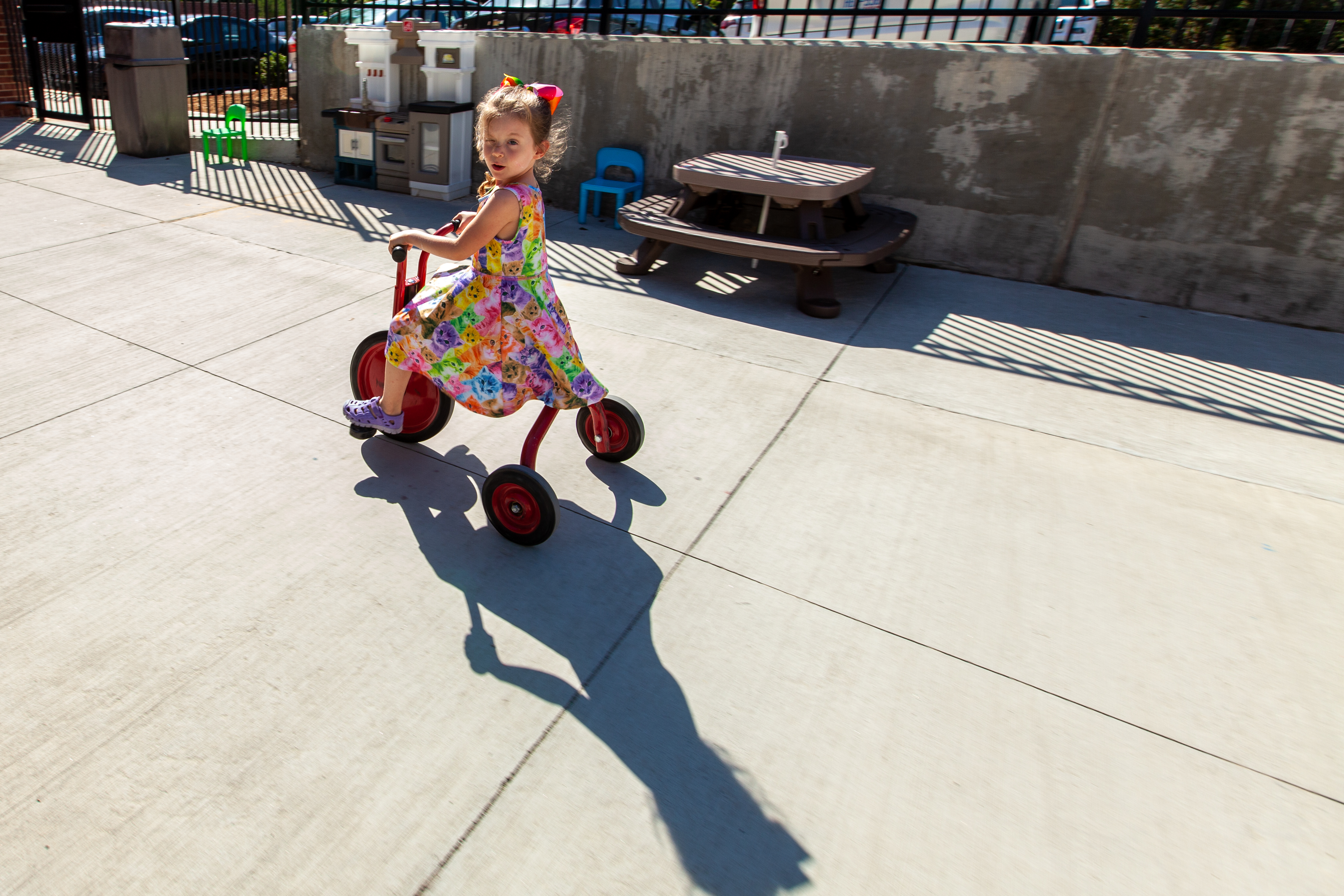Durham PreK Governance Leadership Interview with Wykeshia Glass
September 29, 2022
Interview conducted the afternoon of Monday, February 7, 2022
Dr. Glass, how long have you been a member of the Durham PreK Governance Committee, and can you describe your current leadership role?
I have been a member of the Governance Committee since 2018, and I currently serve in the role of Secretary.
How did you come into the role of Secretary? What about the role appealed to you?
I was asked to serve in that capacity by Dr. Chappel, and after conversing with her about the responsibilities of that role, I agreed. I wanted to make sure that I would be a great fit for that role.
What does the role of Secretary contain?
In that role, I am responsible for taking notes as we conduct meetings quarterly. They have been very supportive helping me in this virtual setting. They have all of the necessary tools needed in order for me to capture what is happening in our meetings, because of course, there is a lot of discussion and a lot of information being shared.
As an associate professor of early childhood education at North Carolina Central University, you must be in touch with the hopes and expectations of future early childhood educators. What do you think is most important to them in their professional futures? And how might Durham PreK rise to the challenge of providing them with rewarding work?
Great question. This is definitely a big topic. These students that I am currently working with will eventually step into career opportunities, whether it's with Durham PreK or wherever their journey takes them. These are the ones who will eventually be educating our children. One of the things that I think is very important in this profession is to really believe in your students’ potential. I'm focusing in on really having those high expectations. I'm allowing them to step outside of their comfort zone in order to pursue success. I oftentimes talk about having those critical thinking skills and being able to think outside of the box. These future educators, gaining these skills at the college level, will be able to implement these same things inside of their classrooms as well.
I think that there are a lot of young adults who haven't developed their social and emotional skills to the extent that they have the soft skills to operate in an academic environment and certainly not in a professional environment. While my program made many efforts to support kids, focusing on these changes of status, such as high school graduation and attending college and enrolling in the military or whatever, it's really hard for people to succeed in those roles if they don't have the social-emotional grounding that allows them to work with other people and to have a realistic sense of their own strengths and weaknesses. Those are just things that are formed very early in life.
I feel like what I'm hearing you say is by helping them with their critical thinking skills within the coursework, you're helping inspire them to teach that same skill to children.
Most definitely.
When you said encouraging them to think outside the box, can you give an example of that or something you've seen that you feel like illustrates how that works?
Yes, of course. Not only do I have traditional students, but I have non-traditional students, as well who sometimes may not be so comfortable with technology. We know technology right now is the thing. With the pandemic, universities had to transition to a virtual setting and we're seeing it even in the preschool and elementary level where teachers are having think about how to get information across to students. When I talk about thinking outside of the box, I tell students they may have to do a lesson where they are recording themselves or implementing video technology. Thinking outside of the box is doing things that they may not have been used to or maybe even feel that they are unable to do. But once they start doing these things, they see, “hey, I am able to still be successful and get this information across to my students to make sure that they are successful.”
 It's building their confidence because they're accomplishing things they didn't think they could do.
It's building their confidence because they're accomplishing things they didn't think they could do.
Exactly.
Yes. I mean, I have had students that were like, “you know, I've never done this before,” and whenever they're able to accomplish that task, that self-confidence just goes through the roof.
As an educator, when you see that self-confidence build and that light bulb go on, what does that feel like for you?
Oh, it's a very exciting moment. I talked about believing in my students and pushing them to their limit, it is such a rewarding feeling to see how it builds their self-confidence and their self-esteem.
I noticed the sign on the wall behind you says “believe,” and I hear you saying that a lot. It seems like a mantra for you and a strong message.
Most definitely. My students know that I am one who is going to try to encourage them, motivate them. I am going to be that individual that, whenever they come to me down or they feel like they're not able to accomplish what I'm asking them to do, I will remind them that as long as they put their mind to it, they're able to achieve whatever goal they have set for themselves.
I looked on your page on the NCCU site and saw that one of your research interests is the parent-teacher-child relationship. How does that dynamic fit within the Durham PreK model?
Great question. Whenever we think about the parent-teacher-child relationship and the overall Durham PreK model, I immediately think about team development. And in order for it to be effective, everyone must be willing to really work together to contribute to that collective outcome that we are seeking in partnership. I oftentimes think of that diagram where you have the child in the center, and then you have the parent and the teacher on each side. In order to really meet that higher standard for early learning, the parent has to be willing to work with the teacher and vice versa, because at the end of the day, our ultimate goal is to make sure that the child is successful. When we all work together, we're able to contribute to making sure that child is successful in their learning,
NC Central is such an intrinsic part of the history and the fabric of the Durham community. How do you see NCCU’s role in inspiring the youth and future leaders of Durham?
Whenever I think about NCCU and its impact in the community, it makes me reflect back to what our motto is, and it is simply “truth and service.” NCCU has a strong tradition of teaching, research, and service. When we prepare students and equip them, they're able then to thrive academically and socially in diverse cultural and educational environments. That's exactly what we want. When we think about our students, we want them to be able to step out into the community and work in any type of culture and educational environment. We really focus in on that academic and social aspect.
And those two words are so strong “truth and service.” It seems like your service to Durham PreK is a model for your students, as well.
Most definitely. Yes.
Do you feel like it’s part of the culture at NCCU that educators and leaders model that service for the students?
Most definitely. We're really big on service. In order for me to be able to model that, I have to be a part of outside organizations and committees. Just being a part of this Governance Committee, I'm able to provide the knowledge and skills that I gain from this committee back into the university and focus back in on my students. So yes, service definitely comes down to the leadership following all the way down to faculty and to our students, as well.
What do you see as the greatest challenge to Durham's universal preschool program? What are the avenues available to address that challenge?
Not only for Durham but when we think about preschool programs overall, I would say the greatest challenge is the ability to provide resources to teachers to really lift them. What we are currently being faced with, of course, is teacher pay. We know that oftentimes for our licensed teachers, there could be a financial burden affecting their overall livelihood. We also know that due to teacher pay, we see a high turnover rate. When we think about ways to address that, we know that to keep those qualified teachers in childcare settings we have to look at the salary and opportunities to help these teachers. We know sometimes teachers may not have completed their degree, so providing those opportunities for them to start and finish their degree is important.
We have teachers that are considering leaving the profession, so we have to find those avenues and those means to keep those individuals. With that compensation, we will be able to keep our current teachers and the ones that are graduating from universities and stepping into their careers.
You really want to have something there waiting for them that is worth the effort and time that they put into their education.
Exactly. Most definitely.
What is the greatest promise Durham PreK holds for both Durham's children and the larger childhood the early childhood field?
When I think about Durham PreK and what this program is doing for the children and the Early Childhood field in general, it is basically providing high quality childcare programs and improving quality. And when we implement incentives for parents, like waiving the parent fee, we're also supporting family engagement, which falls back into my research interest of looking at that parent-teacher-child relationship. These all play a very important role when we think about high quality.

